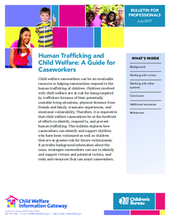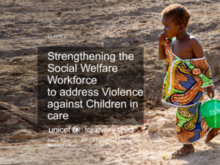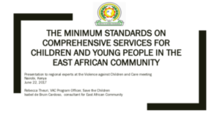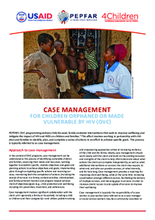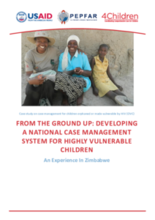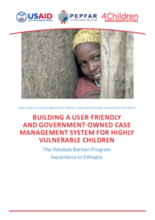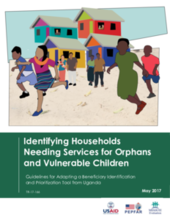Displaying 361 - 370 of 507
This bulletin for professionals in the child welfare field explores how caseworkers can identify and support children who are victims of human trafficking as well as children who are at greater risk for future victimization.
This UNICEF presentation describes the need for social service workforce strengthening in East and Southern Africa and presents recommendations based on a case example from Rwanda.
This presentation provides a background on the East African Community (EAC) Child Policy (2016) and describes the minimum standards and corresponding framework and strategies for providing services to children and young people within the East African Community.
This presentation describes the issue of violence against children in alternative care settings in East and Southern Africa and offers recommendations on how to strengthen the care workforce to ensure it is equipped to prevent and respond to violence against children in alternative care.
This publication provides a description of 4Children's approach to case management for children orphaned or made vulnerable to HIV and their families.
This case study describes the adaptation of a community-based case management model to a national case management framework for highly vulnerable children in Zimbabwe.
This case study describes the coordinated care and case management system for highly vulnerable children and their caregivers implemented by the Yekokeb Berhan program in Ethiopia.
This paper highlights some of the challenges of reforming child care policy and offers recommendations to advance the political priority of care reform at the national level.
The Global Social Service Workforce Alliance hosted its 4th Annual Symposium on May 24, 2017, in Washington, DC, and also via live webcast on the topic of case management and the social service workforce.
This document describes and provides guidelines for countries to implement the Household Vulnerability Prioritization Tool (HVPT), a tool developed in Uganda to identify and prioritize vulnerable households for enrollment in OVC programming.

